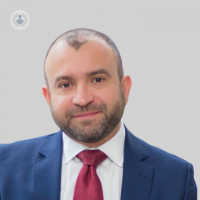Who is an ideal candidate for a rhinoplasty?
Written in association with:In this article below, Mr Mohiemen Anwar, a highly distinguished consultant ENT specialist, tells us who the ideal candidate for rhinoplasty surgery is, and reveals what the operation can improve in patients.

What is rhinoplasty surgery, and who is an ideal candidate?
Rhinoplasty surgery is offered to patients with external deformities of the nose either caused by trauma or birth defects. Although more commonly regarded as a cosmetic procedure, rhinoplasty can be offered to improve the functionality of the nose in situations where the external deformity is affecting the nasal airflow.
What can rhinoplasty surgery improve?
Rhinoplasty surgery can improve the overall appearance of the nose (straightening a deviated nose and/or reducing the size of the nose) and the functionality of the nose.
How is it performed?
Rhinoplasty is performed either via an internal approach (no visible scars externally), or an external “open” approach (a small incision made at the columella; small soft bridge separating the two nostrils). The surgery is commonly performed as day-case surgery, and patients would expect to have certain levels of bruising and swelling following surgery.
A cast made of plaster over the bridge of the nose is applied at the end of the operation to fix the nose in place. A follow-up appointment to remove the cast/splint will be arranged for the patient roughly a week after initial surgery.
What are the potential complications/risks?
There are some potential complications associated with a rhinoplasty. These include:
- Bruising and swelling
- Unsatisfactory outcomes
- Need for revision rhinoplasty surgery
What is recovery time like?
I will immediately review you in the recovery area following your surgery and ensure you are well and reassured. More often than usual, I would also see you in your hospital room after the surgery once you have woken up properly from the general anaesthetic.
Upon discharge from hospital after rhinoplasty surgery, patients will be provided with the following:
- Nasal dressings (nasal bolster) to stop you from bleeding
- Painkillers
- Antibiotics (to be taken for one week)
- Otrovine decongestants (to be taken for 5 days)
- Neilmed rinse for gentle rinsing in the first week until splints are removed
- Nasal drops
Patients should avoid bending down, blowing their nose, and hot showers or baths, and should sneeze from an open mouth for the first three weeks after surgery. Patients should sleep sitting upright in the first few nights as this would be the most comfortable position to sleep in to avoid trauma to the nose and to help with bleeding and breathing.
Book an appointment with Mr Mohiemen Anwar today via his Top Doctors profile.


